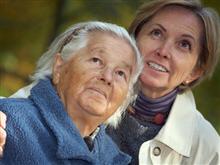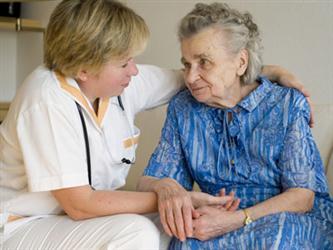
Nearly one-third of people caring for terminally ill loved ones suffer from depression according to research from Yale University. About one in four family caregivers meet the clinical criteria of anxiety. And a recent study found that 41 percent of former caregivers of a spouse with Alzheimer’s disease or another form of dementia experienced mild to severe depression up to three years after their spouse had died.
Caregivers are so vulnerable to depression because they often sacrifice their own needs while tending to their loved one and because of the constant stress involved. Here, then, are 12 tips to help protect you from anxiety and depression and to guide you toward good mental health as you care for a relative.
1. Acknowledge it.
If you haven’t already, say this out loud: “This sucks.” Call a spade a spade. Granted, you don’t want to ruminate on negative thoughts for too long. But suppressing your emotions–forcing that positive cap on each and every thought–can actually do more harm than good. For example, a recent study in the journal “Psychological Science” reported that people with low self-esteem who told themselves positive statements (“I’m good enough, I’m smart enough, Gosh darn it, people like me!”) actually ended up grumpier and with less self-esteem than before they started. What does this mean? Sometimes the best thing that we can do for our mental health is to be honest. And if you’re a caretaker, that means acknowledging that your situation, well, simply sucks.
2. Educate yourself.
Relieve some of your stress by reading up on your loved one’s condition. I say that because if you’re like me, you’re probably scared. You don’t know what’s coming down the pike. You detest surprises, and ever since your loved one fell ill, your life has been full of these shockers.
There’s no way of eliminating all the surprises, of course, but if you understand the illness(es) of the person you’re nursing, then you can better predict his behavior, and can prepare yourself for what may happen in a month or in a year. You might also consider attending a caregiver training program. A recent study showed significant improvement in the quality of life of caregivers who received training. Finally, two books I recommend are “The Caregiver Handbook: Powerful Tools for Caregiving” and “Caregiving: The Spiritual Journey of Love, Loss, and Renewal.”
3. Grab your own oxygen mask.
It always goes back to the ten-second spiel you get right before your plane takes off (or crashes). “In the event of an emergency, an oxygen mask will drop from the compartment above you. Please fasten your own mask before assisting others.” Or, on Southwest airlines, they say, “Now would be a good time to choose your favorite kid.”
Taking caring of your own needs is really as important as grabbing your oxygen mask first because you’ll be running out of breath early in the inning if you hold off on breathing until everyone is well. A study published in the “Journal of the American Medical Association” found that stressed-out older caretakers tending to a sick spouse had a 63 percent risk of death compared to the non-stressed-out caregivers or to lucky folks who don’t have to fetch anyone a glass of water all day long.

